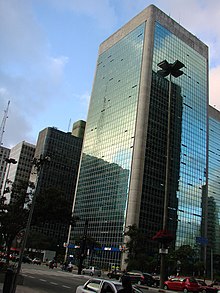You can help expand this article with text translated from the corresponding article in Portuguese. (January 2020) Click [show] for important translation instructions.
|

The Regional Federal Courts (in Portuguese, Tribunais Regionais Federais, commonly called TRFs) are the courts of appeal in the Federal Courts of Brazil [pt], the second instance courts of the Brazilian federal justice system, responsible not only for appeals of trial court decisions, but also for writs of security, habeas corpus, and habeas data against acts by federal judges, motions to set aside judgments, criminal revisions, and conflicts of jurisdiction.
Article 108 of the Brazilian Constitution defines the jurisdiction of the Federal Regional Courts.
They have a varied composition, but the number of judges is defined by law. One fifth are chosen by lawyers with 10 years experience or more, as well as by members of the Public Prosecutor's Office, also known as the "Federal Public Ministry" (Ministério Público Federal) with ten years experience or more. The rest of the judges are appointed through the promotion of federal judges with over five years experience, by longest service time and by merit, alternately.
In each tribunal is a Regional Office for Internal Affairs of Federal Justice (Corregedoria Regional da Justiça Federal), responsible for corrections, inspections, and investigations at first instance. The internal affairs offices are also in charge of hiring processes, and instruction towards a uniformization of jurisdictional activity and forensic service. They are each run by a regional director, with a possible vice-director.